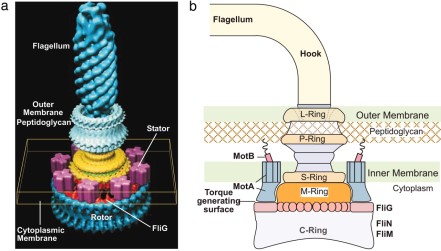How did life originate? did we appear from simple non-living chemicals? or was life designed? Those who argue from the corner of chemical evolution generally appeal to neo-darwinian evolution in attesting to an unguided process; that natural selection sifts through random mutations and identifies the most sufficient forms and system’s for life’s continuation. While those arguing from Intelligent Design (ID) argue that living systems can best be explained by the activity of a designing intelligence not an undirected natural process such as natural selection acting on random variations.
Richard Dawkins one of the leading spokesman for neo-darwinism says that
“Biology is the study of complicated things that give the appearance of having been designed with a purpose.”
The keyword here is “appearance”, is this idea of appearance illusory or is it real? While Dawkins and other evolutionist certainly acknowledges that life looks intelligently designed, is it possible that intelligence is in inference to the best explanation? I believe it is for several reasons which I would like to briefly explain – and no I will not be calling my faith up to the stand.
Firstly I would like to touch on the idea of specified complexity or digital information. In order to create new anatomical novelties you need new genetic code, thus generating a new biological form requires lots of new information or specified arrangements; much like you need new information to give your computer a new function. Thus a critical question in the history of life, both to the point of the origin of the first life and explaining the rise of the new forms, is where did all the information come from?
This is what ex-chemical evolutionary theorist Dean Kenyon described as a huge intellectual road block which ultimately led to his conversion to ID. He says that amino acids can’t organize themselves in a meaningful biological sequence without a pre-existing set of genetic instructions. Kenyon explains that the enormous problem that is neglected is the origins of genetic information itself. Wen you begin to think in light of information, it raises some serious questions about the power of mutations. Could an unguided process of random mutations possibly be responsible for life as we know it?
Genes are sections of genetic code, if you take a section of genetic code, a section of alphabetic text, and you begin to randomly change it blindly, are you more likely to degrade the meaning of the function that’s there or enhance it? How rare or common are the functional sequences of genes in relation to all the possible ways of arranging the base characters (genetic message) in the proteins? If it were fairly common then you could skip from one island of functionality to the next. However, the ratio of number of sequences that perform functions that are meaningful to those that don’t is about 1 to one-trillionth. I know crazy right? But it doesn’t stop there because in order to get a new organism you would need hundreds if not thousands of mutations to occur, the odds are simply astronomical for even one successful transition.
Another signature in the body that leads me to believe in ID is the discovery of nano-technology, which has revealed very tiny complex biological machinery such as the bacteria flagella motor with its rotary engine, drive shafts, and whip-like propeller. Such systems have been defined as irreducibly complex as you can see below

Michael Behe an American biochemist asserts that random genetic mutations and natural selection can not account for such complexity. We know from experience that when we find irreducibly complex systems such as internal combustion engines invariably intelligence played a roll. Thus using the idea of mutations and natural selection to explain new digital information and irreducibly complex systems would be an exotic explanation not based on the knowledge of cause and effect that we see today.
Thus the conclusion reached is that specified digital information encoded in DNA could not have arisen by any known natural cause. Ultimately intelligent design is not made from an argument of ignorance but is in inference to the best explanation. The structure of the argument is that there are no known naturalistic processes that have been demonstrated to produce the digital code necessary to produce the first life, whether through chance or law. Yet we do know of one cause sufficient to produce specified digital information and that cause is intelligence.

Are you obliquely trying to refer to a deity/god?
LikeLike
Just stating the facts, intelligence can refer to whatever you want it to, we all draw our own conclusions 😉
LikeLike
Not facts. You have not established any.
So, are you inferring a god ? Yes or No?
LikeLike
Fact: The only known cause of digital information is intelligence 🙂 by all means if you know of another cause please let me know
LikeLike
So, once again. Are you obliquely trying to refer to a deity/god?
LikeLike
Thanks for weighing-in Ark, God bless!
LikeLike